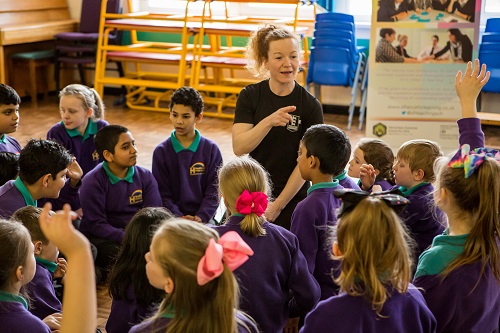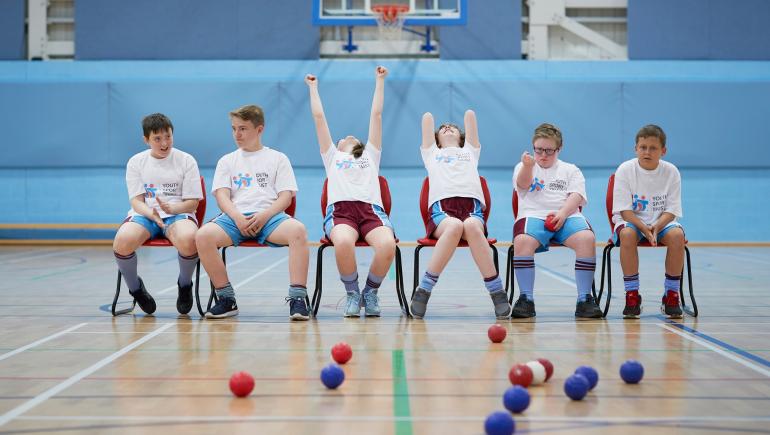The Youth Sport Trust has launched an interactive toolkit and campaign to support the reframing of competition in school sports.
The toolkit, which has been created following a successful 12-month pilot delivered through Sport England’s National Lottery investment in the School Games, comes at a key time as the Government’s School Sport and Activity Action Plan is encouraging the sector to build on the recommendations of Sport England’s Active Lives Children and Young People Survey.
Insight from Active Lives has shown that only 17.5% of children are meeting the Chief Medical Officer’s guidelines of more than 60 minutes of activity a day, every day of the week, reinforcing a need to look at school sport competition differently. The Government’s new strategy has an overarching ambition that “all sport and physical activity provision for children and young people is designed around the principles of physical literacy, focused on fun and enjoyment, and reaching the least active”.
Last year the Youth Sport Trust commissioned research of global and domestic practice in consultation with key stakeholders, such as national governing bodies (NGBs), School Games organisers and other sporting organisations which explored possible alternative competition formats to engage and develop different audiences. The research identified themes looking at widening the competition environment to develop character and life skills, adding fun elements to engage new audiences, and expanding the competition environment to improve health.
Utilising the initial research findings, the charity launched a pilot across 10 areas in England involving more than 2,000 young people. It investigated how changing the design of a competition and putting motivation, competence and the confidence of the participants at the forefront, would have an impact on participation.
Feedback from young people involved in the pilot reported increased engagement and enjoyment, increased skill development and quality of game play; increased confidence to take part in sport, and more of an inclusive atmosphere created with increased participation for all through the alternative competition formats. Three quarters of young people involved said they would like to use the new approaches all the time.
The Trust say this could help to tackle many of the issues highlighted by the research, with an increased focus on removing anti-social behaviour that can be associated with competition, such as cheating, fighting and arguing which was identified by 45% of girls as a barrier to competing.
Emily Reynolds, Head of Sport at the Youth Sport Trust, said: “No longer can we ignore the fact that youth sport experiences have a wider role to play than finding the next Olympic/Paralympic champions.

“Delivered well, competition can be fun, engaging and developmental. The barriers to competition being enjoyed were regularly noted as the pressure, and aggressive behaviours displayed by peers and teachers in competition environments. The innovation seen during the pilots demonstrated that by clearly defining the purpose of the competition, a wide range of young people could recognise and celebrate their individual and collective success, increasing their enjoyment.
“During a basketball competition, young people scored points for competition of skills challenges, the result of the match and also their demonstration of values. This resulted in multiple and varied young people being celebrated.”
The Youth Sport Trust is encouraging all those involved in school sport competition to utilise the free resources and celebrate how they are reframing competition for children and young people by using the hashtag #ReframeCompetition. Download the toolkit here.
To find out more, visit the Youth Sport Trust page on the ConnectSport directory. To add your organisation, contact hello@connectsport.co.uk.












